Major powers seek new security approaches
Editor's Note:
The year of 2014 is coming to an end. Over the past year, the world's great powers have faced a number of challenges, from both within and abroad. Can world powers work together for a better future? Has diplomacy between nations reentered an era in which friends and enemies need to be clearly defined? At a sub-session of the Global Times Annual Conference held on Saturday, a collection of Chinese academics presented their views on China's challenges.
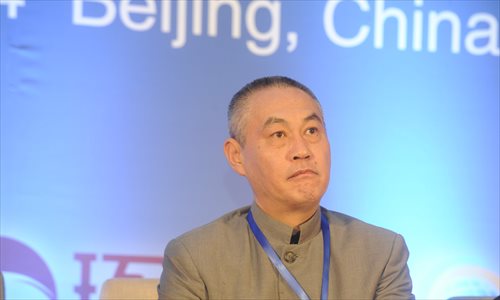
Pan Wei, professor at the School of International Studies, Peking University
Pan Wei, professor at the School of International Studies, Peking University
In international relations, it's difficult for countries to be enemies, so is to be friends. The partnerships among states are limited, because countries only cooperate on limited areas. Under such circumstances, China has to establish a bottom line on security. Besides, we must firmly stick to the socialist path and consolidate harmony and cohesion within our society. Nobody can throw us into chaos as long as we maintain stability ourselves.
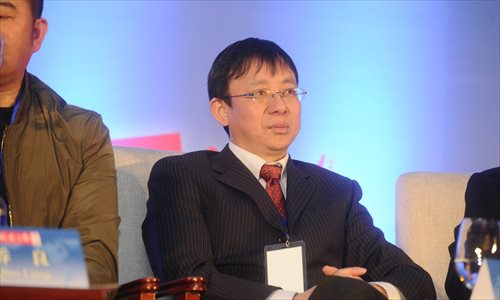
Wu Xinbo, director of the Center for American Studies, Fudan University
Wu Xinbo, director of the Center for American Studies, Fudan University
The US has resorted to an engagement and expansionist strategy to expand its sphere of influence globally since the end of the Cold War, but now it is confronted with an unprecedented challenge, that is, Russia's rejuvenation and China's strong rise.
Economic interdependence has made it difficult to distinguish between friends and foes. Major global powers, be it the US, China or Russia, have to collaborate with each other over a deluge of international affairs at the same time as they are locked into strategic competition.
Therefore, when Washington causes disturbances around the world, Beijing must make as many friends as possible with other states.
The US is consolidating its alliance system and seeking more security partners. China also needs more partners. We have to make friends with US allies, turning them into China's partners.
By doing so, we will have more resources and gain the initiative to work out smarter major-power diplomacy than the US has.
Japan now attempts to form a middle-power coalition with such countries as Australia, India and Indonesia to contain China's rise. Therefore, we should not only pay attention to interactions with major powers like the US and Russia, but also those with small and medium countries in the Asia-Pacific region.
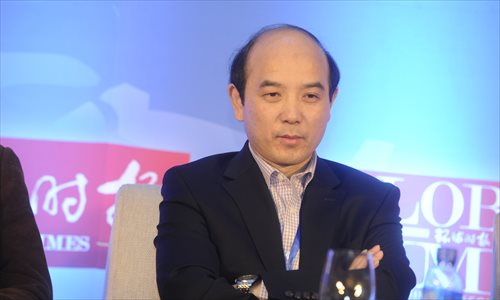
Yuan Peng, vice president of China Institutes of Contemporary International Relations
Yuan Peng, vice president of China Institutes of Contemporary International Relations
Washington is facing a much graver crisis than China's rise: The US-led post-WWII international order is falling apart.
The US has realized that the situation has gone out of its control and without China's cooperation, the tottering system will cause more troubles to the international community.
However, the current Asia-Pacific architecture still lingers without catching up with the new development of the world. The conventional security structure, a US-dominated system, is not in line with a new security concept.
Over the past 30 years, China has managed to integrate itself with a US-led regional economic system. However, regarding security issues, it remains unclear whether Beijing will be able to blend into the US-led system or engage in a conflict with it. China's biggest concern about the regional security structure, that it has a US-Japan alliance as its core, is pushing the military alliance under the spotlight.
The US used to hold both ends tight, one end to contain the former Soviet Union and China and the other to control Japan. But in recent years, it is trying to relax constraints over Japan, which is greatly disturbing China. China is employing a flexible approach, such as proposing the "One Belt and One Road" project to outflank US dominance.
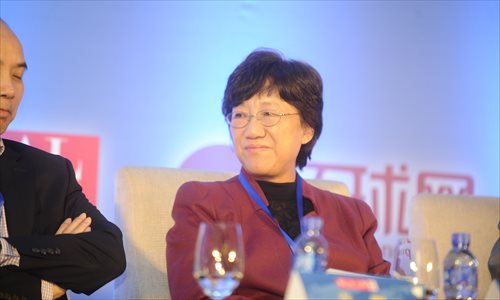
Yao Yunzhu, major general and director of the Sino-US Defense Relations Center, PLA Academy of Military Sciences
Yao Yunzhu, major general and director of the Sino-US Defense Relations Center, PLA Academy of Military Sciences
There are concerns whether the world is going back to the era of the Cold War. But I don't think the past era when there were only friends or foes between countries is returning.
As for major powers, none of them have felt a threat from the others greater than the cost they would have to pay for confrontational engagement. Great powers join hands in a bid to expand their leverage on regional issues instead of forming alliances to oppose each other.
Rivalry between great powers is still under control.
The real problems haunting the international community are non-traditional threats, such as nuclear proliferation, climate change, terrorism, and public health issues. Addressing these issues will benefit all of humanity, so cooperation instead of rivalry is what is really needed.
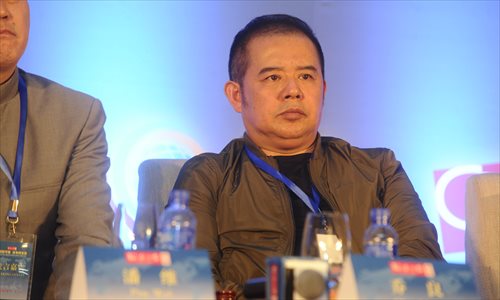
Qiao Liang, professor at the National Defence University PLA China
Qiao Liang, professor at the National Defence University PLA China
My father participated in the War of Resistance against Japanese Aggression (1937-45). I'm disappointed at the current Japanese politics. But what is behind Japan's maneuvers in the Asia-Pacific region is the US. Japan is still following the US lead. Under such circumstances, what will affect China's future development is the power of the US.
The US holds the mentality of a traditional imperial state and will always suppress its challengers. The Americans may have misjudged the situation. They haven't figured out the principle of the world's development, nor do they understand what changes the world is not wars or revolutions.
What can push the US backward is not the challenges posed by China, but the fact that capital benefits will soon be exhausted. The way that the US gains benefits is declining, and this cannot be changed by suppressing its opponents.
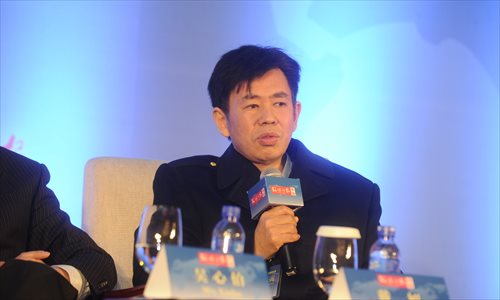
Dai Xu, senior colonel and head of the Research Center for Naval Security and Cooperation
Dai Xu, senior colonel and head of the Research Center for Naval Security and Cooperation
China's discourse power is not only reflected by what it says but how it acts. Since the Qing Dynasty (1644-1911), China has shown enough kindness to the world. Nonetheless, we lack strength.
The defeat of the Qing government during the First Sino-Japanese War (1894-95) sowed the poisoned seeds for the Japanese aggression against China in the late 1930s and 1940s.
It proves that if people behave cowardly, their successors are bound to suffer. Why do the US and NATO not dare to solve the Ukrainian crisis through military means? Because Russia is displaying its strength. What's important for China now is to combine its kindness and strength and show its real intentions to the world.
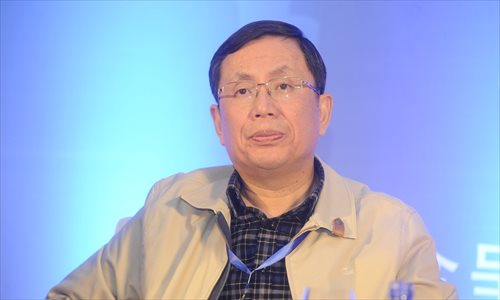
Chen Xiaogong, lieutenant general and a member of Foreign Affairs Committee of the National People's Congress
Chen Xiaogong, lieutenant general and a member of Foreign Affairs Committee of the National People's Congress
I don't agree with the argument that China has no friends and that it is the loneliest emerging nation in modern times.
The PRC's 65 years of diplomacy can be roughly divided into two stages, since there was an important adjustment in the late 1970s and early 1980s. At that time, China officially announced its foreign policy of independence and self-reliance.
This policy stresses safeguarding a peaceful international environment to serve domestic economic construction.
It also stresses non-alliance policy and not defining friend and foe on ideological ground. Even after another three decades, this idea still works well nowadays.
The concept of "friend or foe" is just too simple to define China's relationship with this complex world. Relations between countries, especially big powers, are always a mix of cooperation and competition. Such competition should be maintained within a healthy range to boost common interest and common security.
China is transforming from a big power to a truly strong one. Correct strategies and correct policies can not only realize China's national interests, but also properly reflect its actual strength.
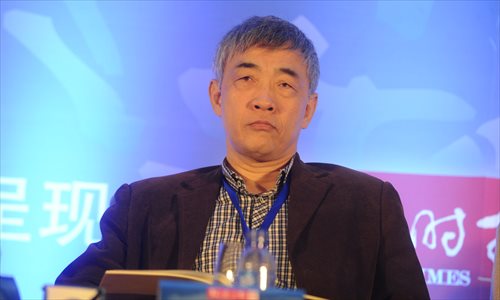
Qu Xing, president of the China Institute of International Studies
Qu Xing, president of the China Institute of International Studies
In Mao Zedong's era, the dominant mentality to differentiate friends and foes in diplomacy was a revolutionary one. But nowadays is the relationship between world powers and the world system a revolutionary one? My answer is no.
Despite various conflicts, big powers are all beneficiaries of the current international system. They do not want to overthrow it, and therefore it is not necessary to hold a confrontational mentality.
In the past year, there have been prominent conflicts among major world players, for example between the US and Russia, between Europe and Russia, and between the US and Europe.
Domestically each power has its difficulties too. In order to avoid vicious competition, we need a common order to ensure win-win cooperation.
In the Asia-Pacific region, there are two security mentalities. One is to construct alliances, holding that one party's absolute security is based on the other party's absolute insecurity. This has already led to a vicious circle. China insists on a different security mentality that emphasizes tolerance and sustainability. For instance, China and Russia have strategic collaboration, and they have common interests over some international issues. But they are not military allies despite concrete strategic cooperation.